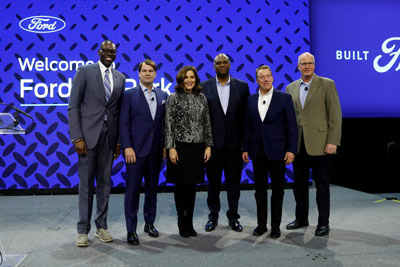Michigan taxpayers will give $1 billion for Ford’s new $3.5 billion electric vehicle battery factory, which the automaker says will create 2,500 jobs in Marshall, MI.
The Michigan Strategic Fund approved incentives for the BlueOval Battery Park, including a $210 million Critical Industry Program grant from Michigan's Strategic Outreach and Attraction Reserve Fund; $772 million in Renaissance Zone property; a real tax exemption over 15 years; and a $36 million loan.
John Mozena, president of the Center for Economic Accountability, a nonprofit organization for transparent economic development policy, said in prepared testimony to the Strategic Fund that continual investments in Michigan manufacturing hasn’t stopped the state from hemorrhaging manufacturing jobs.
“Since 1995, the [Michigan Economic Growth Authority] Board and then the MSF Board have funneled billions and billions of dollars in subsidies to automotive manufacturers here in Michigan,” Mozena said. “And yet, there are now 185,000 fewer manufacturing jobs in Michigan today than when we started. There is no independent evidence that these subsidies have been anything other than ruinously expensive failures for the people of Michigan.”
The plant initially will employ 2,500 people when the production of lithium iron phosphate batteries begins in 2026, which aims to lower the cost of EVs. Ford will have the option to further grow its battery capacity in the BlueOval plant.
An announcement was made Feb. 13 in Romulus that included Ford executives and Democratic Gov. Gretchen Whitmer. Marshall is just outside of Battle Creek, about 100 miles west of Detroit and 45 miles south of Lansing.
The Great Lakes State may well have been a second choice. As reported by The Center Square last month, Virginia Gov. Glenn Youngkin pulled his state out of negotiations with Ford for a megasite; it was in part because of the motor company giant's Chinese partner. Youngkin said his administration "felt that the right thing to do was to not recruit Ford as a front for China to America."
University of Michigan-Flint economics professor Chris Douglas questioned whether the investment is the best use of $1 billion.
“The state has been heavily subsidizing battery manufacturing since the Granholm administration with not a lot to show for it,” Douglas said in an email, referring to former Democratic Gov. Jennifer Granholm, who served from 2003 to 2011. “If there was a market demand for batteries and EVs in general, these manufacturers wouldn't need taxpayer subsidies.”
Douglas added spending $1 billion to create 2,500 jobs would equate to spending $400,000 per job.
“We are committed to leading the electric vehicle revolution in America, and that means investing in the technology and jobs that will keep us on the cutting edge of this global transformation in our industry,” Ford Executive Chairman Bill Ford said in a statement. “I am also proud that we chose our home state of Michigan for this critical battery production hub.”
Ford aims to deliver an annual run rate of 600,000 electric vehicles globally by the end of this year and 2 million globally by the end of 2026.
Michigan has 25,181 EVs registered statewide.
This battery production facility in Michigan will add about 35 gigawatt hours per year of new battery capacity for Ford in the U.S. initially---capable of powering about 400,000 future Ford EVs.
Whitmer welcomed the project.
“Ford’s $3.5 billion investment creating 2,500 good-paying jobs in Marshall building electric vehicle batteries will build on Michigan’s economic momentum,” Whitmer said in a statement. “Today’s generational investment by an American icon will uplift local families, small businesses and the entire community and help our state continue leading the future of mobility and electrification. Let’s continue bringing the supply chain of electric vehicles, chips and batteries home while creating thousands of good-paying jobs and revitalizing every region of our state.”
Marshall Mayor Jim Schwartz also welcomed the investment.
“The city of Marshall welcomes this exciting new partnership with Ford Motor Company,” Schwartz said in a statement. “This investment in the local community will lead to an influx of new jobs to Marshall and economic development throughout the area. We are especially excited to support Ford’s conservation easement which will preserve Michigan’s natural beauty along the Kalamazoo River.”













